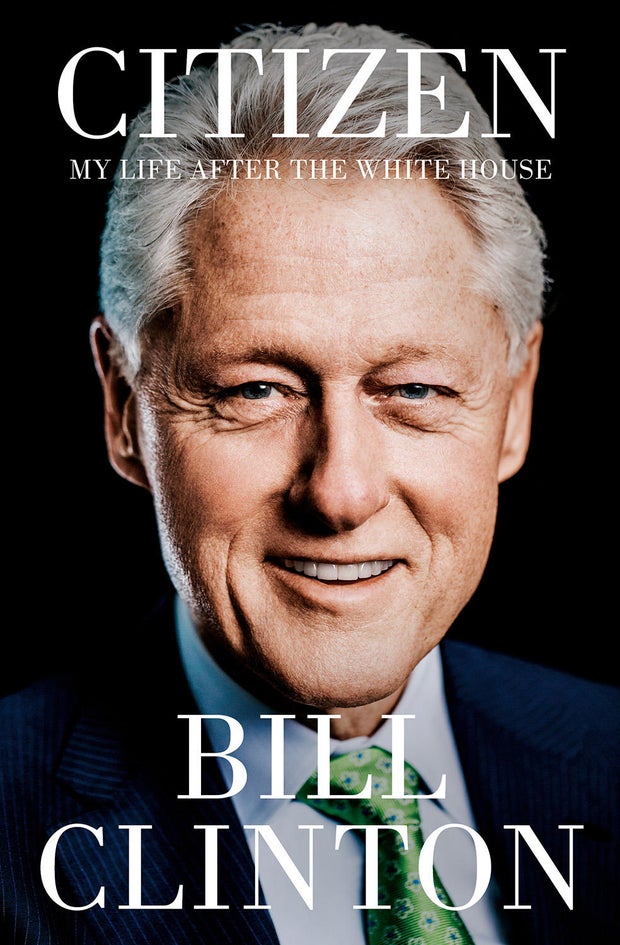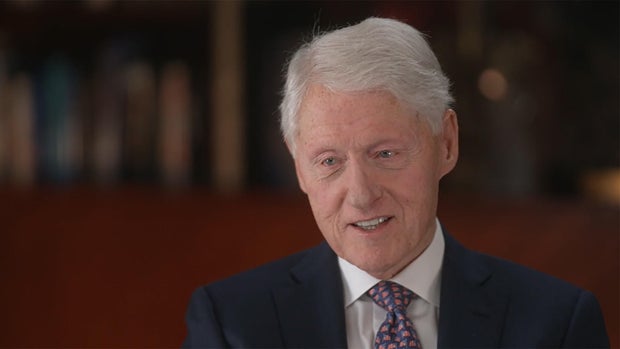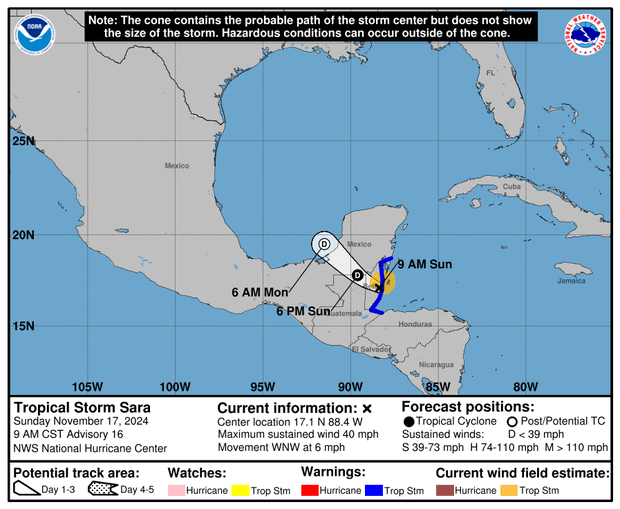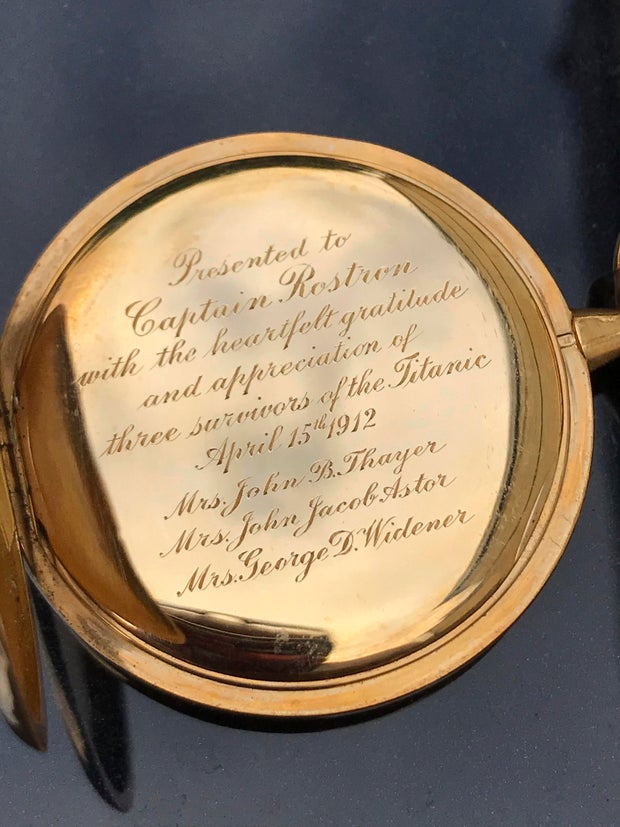CBS News
Bill Clinton on moving forward, urging citizens to “stand up for what we think is right”

They don’t play “Hail to the Chief” when President Bill Clinton shows up anymore, but there is an equally welcome sound he still hears all the time. “We love you!” shouts one bystander in Harlem.
Here, a walk through the streets with Clinton feels a lot like a victory lap. The former president set up shop here shortly after he left office. Back then, he was only 54, newly unemployed, but determined to use his influence, contacts and know-how to make a difference as a private citizen.
CBS News
He even said so in his final address to the nation: “In the years ahead, I will never hold a position higher or a covenant more sacred than that of President of the United States. But there is no title I will wear more proudly than that of citizen.”
In the 24 years since he made that speech, Citizen Clinton has accomplished enough to fill several lifetimes – and the pages of a new book: “Citizen: My Life After the White House” (to be published Tuesday by Knopf).
Knopf
Asked what he was most proud of that he’d done in your time out of the White House, Clinton replied, “I think the thing I’m most proud of is that I proved that you can make a big difference as a private citizen.”
By any measure, he’s done that. Through his Clinton Foundation and the Clinton Global Initiative, which partners business leaders with nonprofits, he’s helped fund projects worldwide – to name a few, a program to help combat HIV/AIDS in South Africa, and a massive clean water project in Rwanda. Closer to home, his foundation helped with everything from the energy-saving retrofit of the Empire State Building in New York, to fighting drug overdoses in the heartland, to an upgrade of street lights in Los Angeles. They also helped fund construction jobs to rebuild crumbling infrastructure.
“We raised $16 billion from union pension funds to put people to work,” he said. “It was the biggest in the country at the time. That’s what I’m proud of, ’cause I think people are happy when they do things that actually make things better.”
The president also hit the road for the Harris-Walz ticket in the final weeks of the campaign, and says he was disappointed, but not entirely surprised, by the result.
I asked, “Do you think part of the issue is that America is just not ready for a female president?”
“Maybe,” Clinton replied. “I think in some ways we’ve moved to the right as a reaction to all the turmoil. And I think if Hillary had been nominated in 2008, she would’ve walked in, just like Obama did.”
“Has the country changed?”
“Well, I think all these cultural battles that we’re fighting make it harder in some ways for a woman to run.”
“So, you think it has more to do with party than gender?”
“No,” he said. “Although I think it would probably be easier for a conservative Republican woman to win.”
“Than a Democrat woman?”
“Uh-huh. Because, I mean, that’s what Maggie Thatcher did,” said Clinton. “But I still think we’ll have a female president pretty soon.”
“How soon? Within your lifetime?”
“Oh yeah. Well, I don’t know how long I’m gonna live. You’re askin’ an old man that question!” he laughed. “I hope I’m around for the next time. But now it’s President Trump’s turn in the barrel. It depends on what he does and how it plays.”
CBS News
We spoke this past week as the president-elect was in the process of naming his new cabinet, shaking up Washington, D.C., and beyond.
I asked, “Are the guardrails off?”
“Well, there’s no obvious guardrail,” Clinton replied. “The Senate’s shown some indigestion about some of these suggested appointments. We’ll see what happens there. You know, somewhere along the way, [Trump will] have to think about whether, at this chapter of his life, he still thinks the most important thing is to have unquestionable domination, ’cause that’s not what a democracy is about.”
“So you’re saying President Trump might have a change of heart?”
“He might. I was raised in the Baptist Church. I believe in deathbed conversions! I think you can’t give it up,” Clinton said. “But I think the rest of us just have to be diligent, watch the signs, and be willing to stand up for what we think is right, even if they take a piece outta our hide.”
In his book, the president writes candidly about his health issues, including his battle with weight. But he couldn’t resist stopping into the famed soul food restaurant Sylvia’s, if only for a cup of coffee.
I asked, “If you were eating here, what would you get?”
“In the middle of the afternoon? I would get some piece of pie.”
“I know you talk about this in your book. You have to watch your diet a little bit now?”
“A lot,” Clinton said. “It’s unbelievable how low your metabolism gets.”
If he’s candid about his health, he’s just as open about past controversies. Clinton writes about Monica Lewinsky, applauding her recent work on bullying.
Why make a point of doing that? He said, “Because I thought I needed to say something about it, and I wanted to be as helpful as I could to let her turn the page. I think she should be given a chance to build a life that is about her and the future, and not, you know, being whiplashed into an old story.”
So, while he’s mindful of the past, Bill Clinton keeps moving forward, making connections big and small, still trying – and often succeeding – in his bid to change the world.
“I don’t mind it when people jump on me; I just talk to ’em,” he said. “And I don’t turn ’em all. You don’t have to turn everybody; you just got to get enough.
“We just all need to loosen up and get back in the game. … There’s one other thing, and I say this in the book many times: We all keep score. You’ve been doing this for a long time. You’re keeping score in your mind about this interview compared to 15 others you’ve done. And I think the way I keep score is: Are people better off when you quit than when you started? Do children have a brighter future? And are we coming together instead of being torn apart? So, for me, it’s enough if I can answer yes to those three things.
“I know there are no permanent victories or defeats in politics,” said Clinton. “And I have no interest in being an armchair quarterback except to help my team perform better. And I think they have enormous talent. So, I wish ’em all well, and I’ll try to help. But meanwhile, I’m gonna just suit up and do what I’m doing.”
READ AN EXCERPT: “Citizen: My Life After the White House” by Bill Clinton
For more info:
Story produced by John D’Amelio. Editor: Ed Givnish.
CBS News
Tropical Storm Sara makes landfall in Belize after drenching Honduras

Tropical Storm Sara made landfall in Belize on Sunday as forecasters expect heavy rain to cause life-threatening flash flooding and mudslides.
The storm made landfall near Dangriga, about 55 miles southeast of the capital Belmopan, the Miami-based National Hurricane Center said.
This comes after Sara drenched the northern coast of Honduras, where it stalled since Friday, swelling rivers and trapping people at home.
Moises Castillo / AP
One death was reported Saturday morning by Honduras Emergency Management, who also said that there have been at least 90 rescues and over 47,000 people affected by the storm.
The Hurricane Center’s tropical storm warning as of Sunday included Honduras’ Bay Islands as well as the country’s northern coast from Punta Castilla to its border with Guatemala; the Caribbean coast of Guatemala; Belize’s coast and northward into the coast of Mexico’s state of Quintana Roo, from Chetumal to Puerto Costa Maya.
The storm, which is moving at 6 mph, will continue to move inland over the Yucatan Peninsula and could drop up to 10 inches of rain across the area, with localized totals reaching 15 inches, through early next week. The conditions “will result in areas of flash flooding, perhaps significant, along with the potential of mudslides,” according to the Hurricane Center.
NOAA/National Hurricane Center
“A storm surge could raise water levels by as much as 1 to 3 feet above ground level near and to the north of where the center of Sara crosses the coast of Belize,” the center said Sunday. “Near the coast, the surge will be accompanied by large and destructive waves.”
Sara is the 18th named storm of the 2024 Atlantic Hurricane Season, which officially runs from June 1 until Nov. 30, with activity typically peaking between mid-August and mid-October. An average season brings 14 named storms, seven hurricanes, and three major hurricanes, according to the National Oceanic and Atmospheric Administration, which did predict the 2024 season would produce “above average” numbers.
CBS News
Gold pocket watch given to captain who rescued Titanic survivors sells for record price
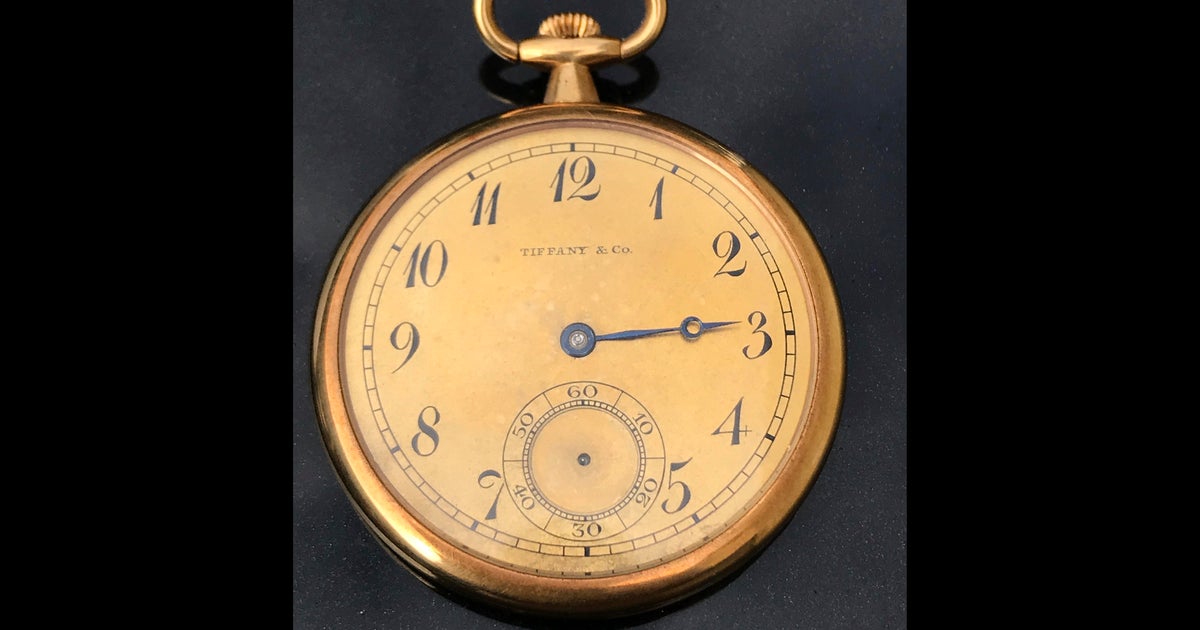
A gold pocket watch given to the ship captain who rescued 700 survivors from the Titanic sold at auction for nearly $2 million, setting a record for memorabilia from the ship wreck.
The 18-carat Tiffany & Co. watch was given by three women survivors to Capt. Arthur Rostron for diverting his passenger ship, the RMS Carpathia, to save them and others after the Titanic struck an iceberg and sank in the north Atlantic on its maiden voyage in 1912.
Andrew Aldridge/Henry Aldridge and Son via AP
Auctioneers Henry Aldridge and Son, who sold the watch to a private collector in the United States on Saturday for 1.56 million British pounds, said it’s the most paid-for piece of Titanic memorabilia. The price includes taxes and fees paid by the buyer.
The watch was given to Rostron by the widow of John Jacob Astor, the richest man to die in the disaster and the widows of two other wealthy businessmen who went down with the ship.
Astor’s pocket watch, which was on his body when it was recovered seven days after the ship sank, had previously set the record for the highest price paid for a Titanic keepsake, fetching nearly $1.5 million (1.17 million pounds) from the same auction house in April.
Auctioneer Andrew Aldridge said the fact that Titanic memorabilia has set two records this year demonstrates the enduring fascination with the story and the value of the dwindling supply and high demand for ship artifacts.
“Every man, woman and child had a story to tell, and those stories are told over a century later through the memorabilia,” he said.
Rostron was hailed a hero for his actions the night the Titanic sank and his crew was recognized for their bravery.
Andrew Aldridge/Henry Aldridge and Son via AP
The Carpathia was sailing from New York to the Mediterranean Sea when a radio operator heard a distress call from the Titanic in the early hours of April 15, 1912 and woke Rostron in his cabin. He turned his boat around and headed at full steam toward the doomed vessel, navigating through icebergs to get there.
By the time the Carpathia arrived, the Titanic had sunk and 1,500 people perished. But the crew located 20 lifeboats and rescued more than 700 passengers and took them back to New York.
Rostron was awarded the U.S. Congressional Gold Medal by President William Howard Taft and was later knighted by King George V.
Madeleine Astor, who had been helped into a lifeboat by her husband, presented the watch to Rostron at a luncheon at her mansion on Fifth Avenue in New York.
The inscription says it was given “with the heartfelt gratitude and appreciation of three survivors.” It lists Mrs. John B. Thayer and Mrs. George D. Widener alongside Astor’s married name.
“It was presented principally in gratitude for Rostron’s bravery in saving those lives,” Aldridge said. “Without Mr. Rostron, those 700 people wouldn’t have made it.”
CBS News
Extended interview: Cher – CBS News

Watch CBS News
Be the first to know
Get browser notifications for breaking news, live events, and exclusive reporting.



